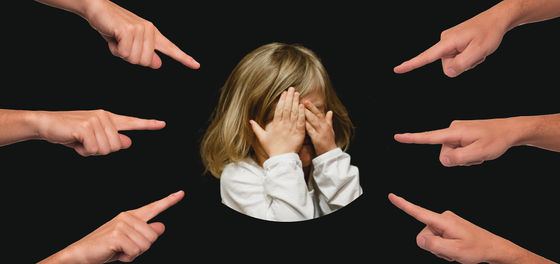Why do people have a 'victim mentality'?

In 2020, a large-scale protest movement spread in the United States, mainly in Minneapolis, following the death of George Floyd in police custody. As represented by this George Floyd case, in recent years there has been a lot of treatment and reporting that praises the victims. Expert Rahab Gabey explains the 'victim consciousness' seen in this trend.
Why People Feel Like Victims - Issue 99: Universality - Nautilus
https://nautil.us/issue/99/universality/why-people-feel-like-victims
Gabey, a psychology researcher at Israel's Tel Ahib University, has developed a personality trait, ``Tendency toward Interpersonal Victimhood,'' which relates to how long people maintain the feeling that they are interpersonal victims. A person who conducts research on a concept called Tendency (TIV). Mr. Gabey explains that there are 'four elements' about the propensity of TIV.
The first element is that ``the victim insistently seeks recognition not only by the perpetrator but by society as a whole.'' Human beings are viewed as morally inferior', the third is 'lack of empathy that believes victims have the right to act selfishly', and the fourth is 'episodes that hurt self-esteem'. It is a backward-looking tendency to dwell on

Mr. Gabey conducted a survey ``How do you think when you receive negative feedback from your work colleagues?'' and is also investigating the relationship between subjects' TIV and revenge. According to this survey, people with higher TIV (= stronger victim consciousness) not only had a stronger desire for revenge, but also a stronger 'feeling of unforgiveness'.
According to Gavey, people with very high TIV are basically those who have experienced a trauma like PTSD. From a series of studies, Mr. Gabey also discovered that there is a correlation between the strength of victim consciousness and the concept of 'Anxious Attachment Style' in psychology. Anxious attachment style is defined as 'inconsistent behavior/not recognizing when care was needed/very aggressive attitudes' from those who cared for the child during childhood, such as parents. As a result, he said that he could not learn 'how to soothe himself' that he should learn naturally. People with an anxious attachment style continue to linger on the negative emotions associated with aggression.
On the other hand, Mr. Gabey points out that 'country and society' have a large impact on TIV. In Nepal, where Mr. Gabey personally traveled, people did not tend to show anger and blame each other, and it seems that there was a concept that 'showing anger is childish'. 'When leaders act like victims, people learn that it's okay to be aggressive, it's okay to blame others, it's okay to hurt others and not take responsibility,' Gabey said. 'There is a very big difference in the victim mentality between countries and societies,' he said.
Mr. Gabey said that TIV affects even daily life, but as for how to deal with it, 'children's education is the most important'. In addition to educating children, learning about the four elements of TIV and becoming aware of behavior based on victimhood and deepening one's understanding of 'one's intentions' and 'one's motives' is the key to behaving like a victim. said to help reduce
Related Posts:
in Note, Posted by darkhorse_log







